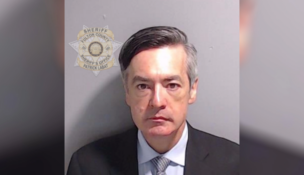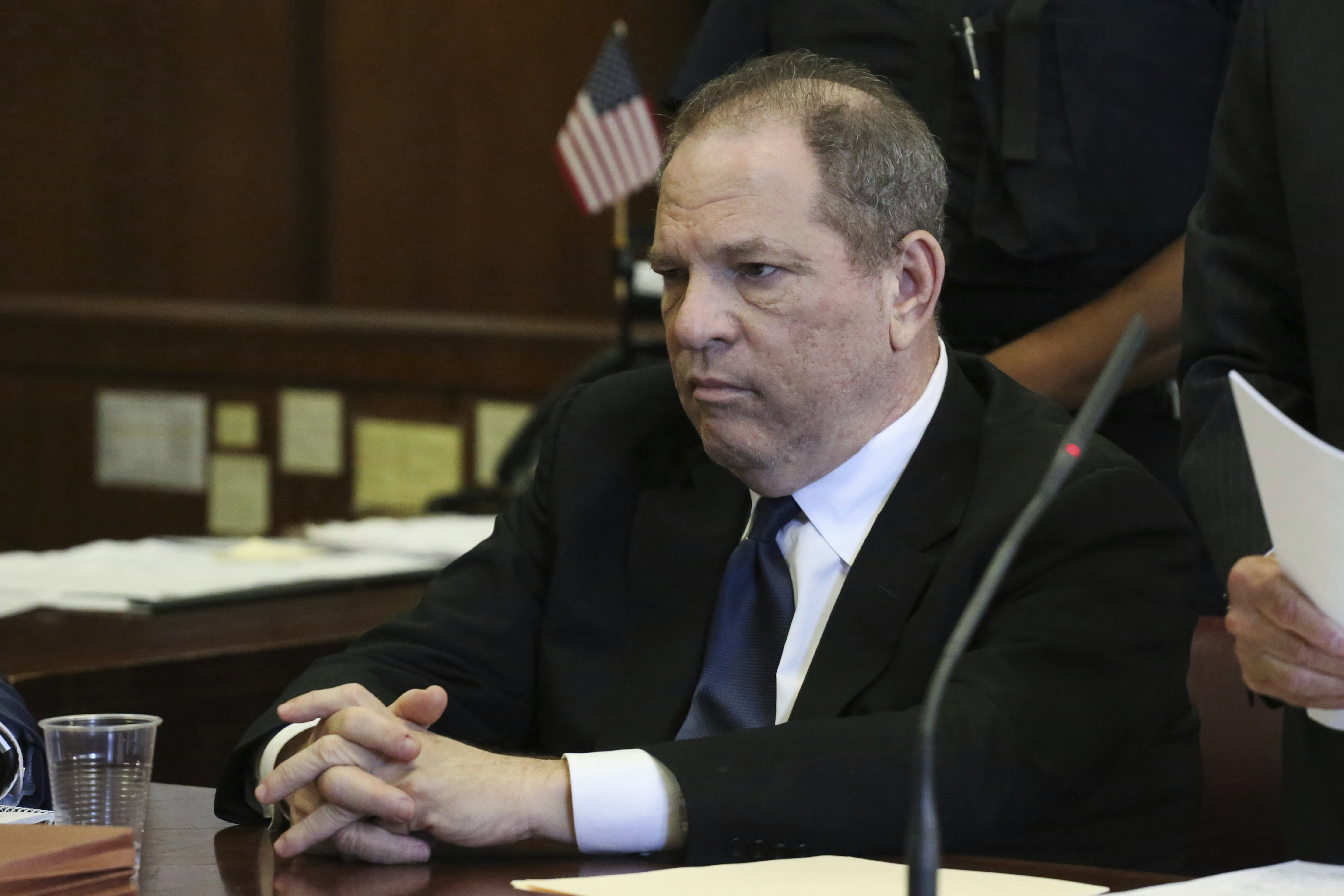Steven Avery prosecutor Ken Kratz disparages ‘Making a Murderer’ rebuttal, ‘Convicting a murderer’
By: Steve Schuster, [email protected]//April 11, 2024//
Steven Avery prosecutor Ken Kratz disparages ‘Making a Murderer’ rebuttal, ‘Convicting a murderer’
By: Steve Schuster, [email protected]//April 11, 2024//
Published April 11, 2024 at 6:50 p.m. CDT.
There are two well-known docuseries about Steven Avery, the original Netflix series ‘Making a Murderer,’ which told a story of how Avery was allegedly setup to be found guilty of the murder of Teresa Halbach.
The newer Transition Studios ‘Convicting a Murderer’ series is far from another season or sequel “Making a Murderer.” In fact, “Convicting a Murderer” was actually made as a rebuttal to the original Netflix docuseries.
However, Ken Kratz the prosecutor of the Avery case took aim at the ‘Convicting a Murderer’ (CAM) series which ultimately defended his very own prosecution.
During an exclusive interview with the Wisconsin Law Journal on Thursday, Kratz said, “I am incredible disappointed that CAM never even attempted to tell the incredible twists and turns of the trial of Steven Avery, using the exclusive documents, stories, and work product I’ve collected over the past 18 years.”
“It’s a weak story and a weak presentation, and for what Transition Studios has by way of compelling storylines it’s a shame,” Kratz added.
During an interview with ‘Convicting a Murderer’ producer Shawn Rech on Thursday, Rech defended CAM and reminded Kratz a non-disclosure agreement is in place.
“We believe we created the most enlightening and entertaining product. He (Kratz) has a lot more to say, about this case, and he is allowed to make his own project, we can’t stop that,” Rech said.
“I am aware of his displeasure of how the story was told, however, we have a mutual non-disclosure agreement so I will leave it at that,” Rech said.
Kratz further criticized Brenda Schuler, who he hired to help him fact-check his book, ‘Avery.’
“Brenda is a housewife from Kaukauna, who didn’t even know about the case until MaM aired in December, 2015,” Kratz said, critical of Schuler.
In response, Schuler told the Wisconsin Law Journal Thursday, “I plan to honor our mutual non-disparagement agreement and therefore will not comment on Kratz specifically. However, is the “housewife” he’s referring to the retired insurance company executive that he asked to help fact check his book?”
As previously reported by the Wisconsin Law Journal, former Calumet County prosecutor Ken Kratz provided his trial journal to the Wisconsin Law Journal during an exclusive interview last week regarding the Steven Avery trial.
In response, Avery’s current defense attorney, Kathleen Zellner, made allegations that Kratz did not author the journal at the time of the trial.
“This document was not written contemporaneously with the trial,” Zellner said during an exclusive interview with the Wisconsin Law Journal.
In response, Patch (another media outlet) wrote it agreed with Zellner and went one step further.
Journalist John Ferak wrote, “I believe it’s much more likely that Kratz crafted his trial diary in the last six months or so.”
The Wisconsin Law Journal and Patch articles resulted in a firestorm on Twitter attacking the former Calumet County district attorney.
During a recent interview with the Wisconsin Law Journal, Kratz said the statements made by both Zellner and Patch about the journal being authored recently are absolutely false, and statements made were not based on facts or evidence. Kratz said he has evidence and witnesses to prove that the trial journal was written at the time of trial.
“I provided the trial journal to Brenda Schuler while we worked on my project with NBC Universal. She obtained these exclusive materials from me between 2016-2018,” Kratz said.
Rech confirmed Kratz’s statement, that the journal existed many years ago.
“My producer (Brenda Schuler) has verified the trial journal excerpts published in the Wisconsin Law Journal on March 26, 2024, did in fact exist and was in her (Brenda’s) possession eight years ago when she began research on Kratz’s book,” Rech said.
The Wisconsin Law Journal reached out to Schuler the same day.
Schuler confirmed what Rech and Kratz said is accurate. Schuler said she first reviewed Kratz’s trial journal in 2016, and in 2018 moved it to Dropbox for Rech to review.
Schuler then provided a screenshot from her Dropbox account providing further evidence that the file is from six years ago, which is in alignment with the timeline Kratz provided the Wisconsin Law Journal.

Zellner declined to comment on how Patch obtained a copy of Kratz’s trial journal and deferred questions to John Ferak with Patch. The Wisconsin Law Journal reached out to Ferek and Patch multiple times on Tuesday and Wednesday. To date, he has not replied to our emails or returned our phone calls.
The Wisconsin Law Journal then reached out to the legal department with Patch. Patch responded on April 5 with an apology to the Wisconsin Law Journal and Kratz and said they have taken down the false and damaging content that was the intellectual property of the Wisconsin Law Journal and Kratz.
Patch responded, “We apologize for any inconvenience this may have caused you. Upon our investigation, it appears that the (Patch) article you submitted has been deleted and will no longer be visible.”

The Wisconsin Law Journal confirmed Friday the false story had been removed from Patch’s website.

During an interview with the Wisconsin Law Journal Kratz previously said he “will follow through with any legal recourse available to him should any of his trial journal be reproduced or published without his expressed consent.”
Also as recently reported by the Wisconsin Law Journal, on eve of the Ides of March, Zellner filed papers with the Circuit Court of Manitowoc County in what Kratz described as “a bombshell motion.”
According to court documents obtained by the Wisconsin Law Journal on March 14, Zellner asked the court for a second order to allow Avery to conduct post-conviction testing for touch DNA evidence in Teresa Halbach’s vehicle. Avery was convicted of murdering Halbach.
In Avery’s motion, Zellner noted, “counsel now has the financial resources, donated by Mr. Avery’s supporters, to conduct additional testing on items from Ms. Halbach’s vehicle that have never been tested previously for touch DNA, Mr. Avery is requesting, pursuant to the 2007 DNA Order entered by Judge Willis, that he be allowed to do such testing.”
According to Zellner, the untested items of evidence that Avery requests to conduct testing on are:
- the driver and passenger seats;
- the dashboard;
- the near shift;
- the steering wheel;
- the interior and exterior hood latch release;
- the broken turn signal light (Item A15);
- the hood prop;
- the battery cable;
- the battery;
- the rear cargo area;
- interior and exterior cargo door; and
- the lug wrench and the license plate.
According to Zellner, in addition to performing the touch DNA testing to identify any third party to the murder of Halbach, specific evidence has developed directly connecting Bobby Dassey to being in possession of the RAV-4 and moving it onto the Avery property on Nov. 5, 2005.
Zellner argues Avery is entitled to mandatory testing of Halbach ’s vehicle pursuant to the prior court order entered on April 4, 2007.
As previously reported by the Wisconsin Law Journal, the basis for the previously requested hearing was that an alternate suspect was guilty of Halbach’s murder, not Avery.
January’s motion was filed with the Wisconsin Court of Appeals District II seeking alternative remedies after previous requests for a new trial and evidentiary hearing were denied in August by a Sheboygan County judge.
According to court documents previously obtained the Wisconsin Law Journal in January, Zellner said her client is requesting a reversal of the Orders Denying Postconviction Relief and grant an evidentiary hearing, reverse the judgments of conviction and the orders denying Postconviction Relief and remand for a new trial and grant any other relief this Court deems appropriate.
“Conducting an evidentiary hearing on the new evidence of a third party being in possession of Teresa Halbach’s vehicle is vitally important to preserve the integrity of the Wisconsin judicial system. Mr. Avery’s trial defense was that the forensic evidence used to convict him had been planted. Now a witness has placed the vehicle with all of that forensic evidence in the hands of a third party prior to that evidence being discovered,” said Zellner during an interview with the Wisconsin Law Journal. “Can anyone seriously contend if a jury had heard testimony from this witness that a reasonable doubt would not have arisen in the jurors minds about Steven Avery’s guilt?” Zellner asked.
Zellner and Richards argue in the appellate brief that the Circuit Court improperly attempted to weigh Avery’s facts with speculative theories unsupported by the record rather than accepting his facts as true and determining whether they were sufficiently pled to warrant an evidentiary hearing.
An evidentiary hearing would provide Avery with the opportunity to prove his pleaded claims that he is entitled to a new trial, according to court documents.
Defense counsel further argues, “the circuit court improperly found that the materiality of Mr. Avery’s newly discovered evidence is exclusively contingent upon its satisfaction of the Denny test for admissibility of potential third-party suspect evidence.”
Avery is currently serving life in prison after being found guilty for the murder of Halbach. Halbach was murdered on Oct. 31, 2005. For the past 18 years, Avery has had a number of new criminal defense attorneys who have all been unsuccessful at his release. However, Avery’s current attorney, Kathleen Zellner, remains optimistic that new evidence will prove her client’s innocence.
Avery was the star in the Netflix series “Making a Murderer,” which originally aired in 2015. The series received criticism from the media, government officials and the general public for allegedly only telling one side of Avery’s story, revictimizing Halbach and her family, as well as incriminating law enforcement professionals.
Legal News
- Newly filed report with federal court seeks Havana Syndrome transparency
- Questions of transparency, leadership responsibility linger over State Bar trust
- Firm demands $4.3M in dispute with Wisconsin client
- Chesebro among those charged with interfering in 2020 election
- Williams-Sonoma must pay almost $3.2 million for violating FTC’s ‘Made in USA’ order
- Harvey Weinstein due back in court, while a key witness weighs whether to testify at a retrial
- Protests erupt on college campuses throughout Midwest, and U.S. over war in Gaza
- Flight attendant indicted in attempt to record minor in airplane bathroom
- Wisconsin attorney loses law license, ordered to pay $16K fine
- Former Wisconsin police officer charged with 5 bestiality felony counts
- Judge reject’s Trump’s bid for a new trial in $83.3 million E. Jean Carroll defamation case
- Dozens of deaths reveal risks of injecting sedatives into people restrained by police
WLJ People
- Power 30 Personal Injury Attorneys – Russell Nicolet
- Power 30 Personal Injury Attorneys – Benjamin Nicolet
- Power 30 Personal Injury Attorneys – Dustin T. Woehl
- Power 30 Personal Injury Attorneys – Katherine Metzger
- Power 30 Personal Injury Attorneys – Joseph Ryan
- Power 30 Personal Injury Attorneys – James M. Ryan
- Power 30 Personal Injury Attorneys – Dana Wachs
- Power 30 Personal Injury Attorneys – Mark L. Thomsen
- Power 30 Personal Injury Attorneys – Matthew Lein
- Power 30 Personal Injury Attorneys – Jeffrey A. Pitman
- Power 30 Personal Injury Attorneys – William Pemberton
- Power 30 Personal Injury Attorneys – Howard S. Sicula












